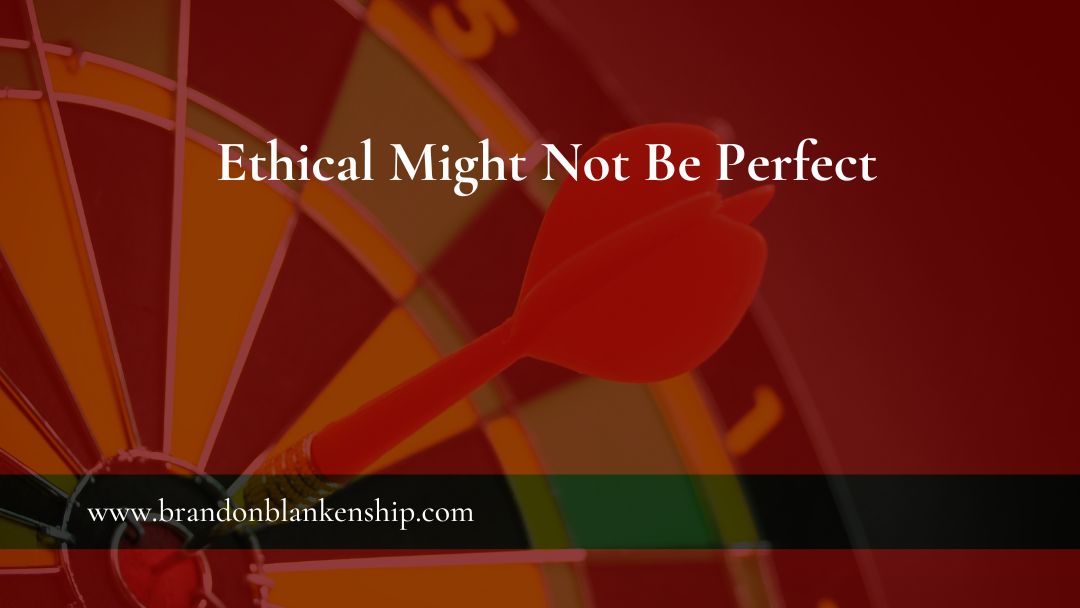In spite of demands for perfection, being an ethical person is not synonymous with flawlessness. Ethics, at its core, is about understanding the moral compass that guides our actions and, perhaps more importantly, it’s about the willingness to repair what we break along the way.
Embracing Imperfection
First and foremost, perfection is an unattainable ideal. Every individual, no matter how virtuous, will face moments of ethical dilemma or even make mistakes. To expect absolute perfection from ourselves or others is not only unrealistic but also counterproductive to the ethical journey. Instead, we should embrace our imperfections as opportunities for growth and learning.
The Moral Compass
At the heart of ethics lies our moral compass, the internal guide that directs us toward what we perceive as right and wrong. However, even the most finely tuned moral compass can occasionally malfunction. We might make decisions in the heat of the moment, driven by emotion rather than reason. We could misjudge a situation or underestimate its ethical complexity. These missteps do not make us unethical by default; they make us human.
Repairing What We Break
The true test of our ethical character lies not in our ability to avoid mistakes but in our commitment to rectify them. When we recognize that our actions have caused harm or transgressed ethical boundaries, the ethical response is to take responsibility and begin the process of repair. Repair involves several key elements:
Acknowledgment: The first step is acknowledging our mistake or ethical lapse.
Understanding Consequences: We must fully grasp the consequences of our actions, not just for ourselves but also for others. This understanding fuels our commitment to repair. Often, understanding is a process that develops over time.
Apology: Offering a sincere apology is a vital part of the repair process. It acknowledges the harm caused and expresses remorse. A genuine apology takes responsibility without excuses.
Making Amends: Beyond words, we must take concrete steps to rectify the situation, a regretitation. This might involve restitution, rectifying errors, or providing support to those affected.
Learning and Growth: The most profound repair comes from learning from our mistakes. It involves self-reflection, education, and a genuine commitment to change.
The Ethical Paradox
Paradoxically, it’s our capacity to make mistakes and then rectify them that often leads to the most significant ethical growth. It’s through our imperfections and the subsequent acts of repair that we build resilience, empathy, and a deeper understanding of the consequences of our actions. Ethical perfection, if it were attainable, might leave us apathetic, stagnant, and complacent.
A Call to Action
Being an ethical person is not about flawless conduct but rather about taking responsibility for our actions, rectifying our mistakes, and growing from the experience. It’s a lifelong journey characterized by humility, empathy, and an unwavering commitment to do better.
In a world where ethical dilemmas are complex and ever-present, we must remember that perfection is not the goal. Instead, we strive to be ethical individuals who, when they stumble, possess the strength and integrity to stand up, repair what they’ve broken, and continue forward on the path of ethical living. After all, it’s not about being perfect; it’s about becoming better.
###
- Inviting Human Flourishing Through Building Design - March 22, 2024
- The Message in Your Misfortunes - January 28, 2024
- The Right of Self-Determination - January 15, 2024

